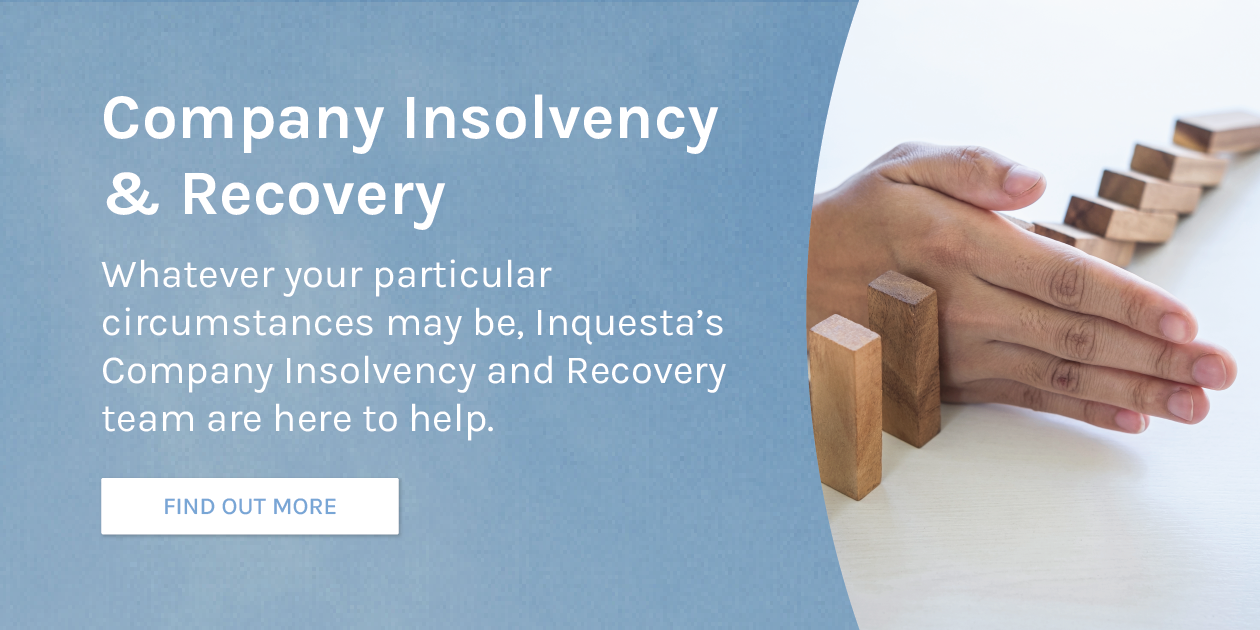What Does Insolvency Practitioner Do?
What Does Insolvency Practitioner Do?
Blog Article
Unknown Facts About Insolvency Practitioner
Table of ContentsThe Only Guide to Insolvency PractitionerThings about Insolvency PractitionerWhat Does Insolvency Practitioner Do?The Best Guide To Insolvency PractitionerThe Basic Principles Of Insolvency Practitioner
Whether you need to make use of a bankruptcy practitioner (IP) to liquidate your company relies on numerous factors. While engaging a bankruptcy expert for all kinds of liquidation is not a legal requirement, doing so can typically streamline the procedure and guarantee conformity with lawful requirements. Liquidating a business is a vital choice that includes substantial repercussions.
It is a procedure made use of when a firm does not have any creditors, or every one of their creditors can be repaid in full with legal rate of interest. Recognizing the different types of insolvency procedures can aid you determine the very best strategy for your company's liquidation or various other formal insolvency procedures itself.
This is obligatory in order to abide by legal requirements - Insolvency Practitioner. This is since IPs have the necessary credentials and experience to ensure that the liquidation procedure is carried out based on all applicable legislations and regulations. By engaging an accredited insolvency professional, you can have tranquility of mind knowing that your business's liquidation process will certainly be handled properly and in conformity with the appropriate legal requirements
The Definitive Guide to Insolvency Practitioner
The bankruptcy expert is assigned as a liquidator and is in charge of taking care of the company and liquidator's debts superior responsibilities and properties. This procedure includes selling the company's properties and dispersing the earnings to creditors. Upon conclusion of the process, the company is removed from the register at Companies Home.
Failing to do so can lead to personal responsibility for the business or director for the lender's debts. Volunteer liquidation, which consists of Creditors' Volunteer Liquidation (CVL) and Members' Volunteer Liquidation (MVL), is initiated by the firm's directors and investors when they can no more pay their financial debts. In a CVL, the insolvency expert is assigned as the liquidator, responsible for handling company financial obligations and all company possessions.

Our Insolvency Practitioner PDFs
By examining the experience and experience of potential insolvency experts, you can make sure that you pick a professional who possesses the required certifications to handle your company's liquidation process efficiently. While insolvency practitioner-led liquidation is usually one of the most suitable course of action for his comment is here business facing bankruptcy, there are alternative methods to think about, such as striking off and partial liquidation.
It's necessary to assess all available alternatives prior to selecting the following ideal service or strategy for your business. Striking off firms' registers is an extra simple and cost-efficient means to close inactive or tiny business with no financial debts or possessions. To strike off a business, its name is gotten rid of from the Firms Home register by submitting form DS01.
Before selecting striking off, it's essential to consider the advantages and downsides of this approach and take into consideration whether it's the right choice for your service. Partial liquidation is an additional choice to insolvency practitioner-led liquidation, wherein a company liquidates specific assets and obligations while remaining to run with the continuing to be properties and helpful site liabilities.
A Bankruptcy read Professional will certainly have the ability to advise you of the very best training course of activity to take and ensure that every little thing runs smoothly. It is not possible to sell off a firm without a liquidator. Designating an authorised bankruptcy expert is necessary for the process of voluntary liquidation to begin.
Insolvency Practitioner Fundamentals Explained
It is possible to shut and liquidate your company without using a liquidator, provided your business is solvent and you meet the eligibility needs to dissolve or liquidate it. However, if your company is bankrupt, you may be needed to utilize a liquidator and start formal bankruptcy treatments. Below are a few other informative posts relating to firm liquidation in the UK:.
Remaining in a placement where you're unable to pay your business's financial institutions is exceptionally stressful. In an attempt to prevent enhancing the degree of financial debt, several business try to discuss directly with their creditors and consent to a casual setup. If the financial obligation is rather little and owed to one financial institution, and the creditor is being cooperative, becoming part of an informal debt setup is probably the ideal service, instead of searching the web for 'a bankruptcy expert near me'.
On the other hand, if there are several lenders and the degree of debt is huge, lenders may not be so eager or cooperative. To avoid liquidation or personal bankruptcy, it is better to employ a bankruptcy practitioner to prepare formal proposals and negotiate with financial institutions in your place.
Excitement About Insolvency Practitioner
Whilst it is a means to manage financial obligation, there are considerable risks entailed with this sort of debt plan - Insolvency Practitioner. If a financial institution wants to participate in an informal setup (IA) where the borrower has consented to make regular, if lower, repayments to settle the debt, it is essential to stay with the contract

The lender is within their rights to back out of the contract and petition the courts for your company to be liquidated at any kind of time. An official plan that has been proposed by an insolvency practitioner in your place, and concurred by a financial institution, supplies a much more secure choice.
Report this page